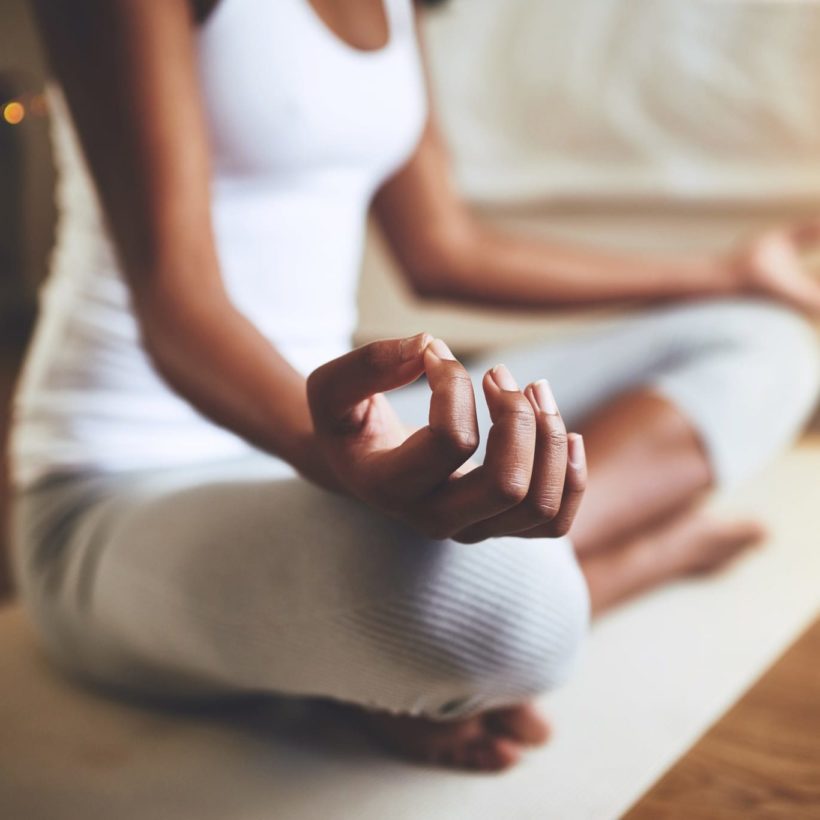It’s that time of year again when the days become shorter, the temperatures drop dramatically, and the anticipation of the holiday season begins. Though exciting and celebratory for many, the holiday season can understandably stir up quite a lot of anxiety and stress for many individuals. There’s an obvious increase in the pace in which we’re doing things, especially compared to other months of the year where there’s less social pressure and demands. As such, people who are highly sensitive or who are big empaths, people-pleasers, and those prone to anxiety and/or depression can have a particularly hard time, explains Stephanie Korpal, M.Ed., L.P.C., mental health therapist and owner of Marble Wellness in St. Louis, Missouri.
“Those who are highly sensitive or who are empaths really feel the energy of others easily, and without even asking,” she says. “These individuals often end up ‘accumulating’ the emotional weight of others and therefore can feel bogged down by the holidays, even if they themselves have a pretty good holiday spirit, are in good places in their relationships, and are generally feeling okay about their day-to-day lives.”
Even those not prone to sensitivity or mental-health conditions such as anxiety or depression often find themselves caught in the crossfires of stressful scenarios, many of which involve family or friends. “Families are inherently complicated, so even well-adjusted families may prompt intrusive questions or make judgmental comments that contribute to feelings of stress when it comes to different expectations and topics of conversation during the holidays,” says Saba Harouni Lurie, L.M.F.T., a licensed therapist and founder of Take Root Therapy in Los Angeles. “Different political stances can also cause tension during the holidays, as can family members prodding into personal lives.”
Meet the Experts
Stephanie Korpal , M.Ed., L.P.C., is a mental health therapist and owner of Marble Wellness in St. Louis, Missouri.
Saba Harouni Lurie , L.M.F.T., is a licensed therapist and founder of Take Root Therapy in Los Angeles.
Kiara Luna , L.M.H.C., is owner of Knew You Psychotherapy and author of Becoming a Knew You.
And then there’s the financial pressures involved in buying gifts, paying for travel and even taking time off of work that can add additional strain. During a time period that’s supposed to be nothing but joyous and momentous, it’s not uncommon for many people to find themselves feeling less-than in several aspects of their lives.
One of the best things you can do for yourself during the holiday season and throughout the rest of the year is to create some mental health ground rules to help keep yourself in check and accountable for how you’re feeling. These ground rules essentially help you set boundaries for yourself and others to make sure that you’re not pushing yourself to the brink of negativity in any area. Not sure where to start? We tapped mental health experts to share their best tips for setting ground rules to help you not just survive, but thrive, during the holiday season.
Make a gratitude list.
A great way to kick off the holiday season is by writing down all the things you are thankful for this year — no matter how small you may think it is. “This helps us to refocus on the good and not beat ourselves down for what has not been accomplished,” says Kiara Luna, L.M.H.C., owner of Knew You Psychotherapy and author of Becoming a Knew You. “The more gratitude you show, the more things to be thankful for will come your way.”

Limit the amount of times you RSVP “yes”.
When you’re invited to a party, it’s tempting to want to reply that you’re going; however, the holiday season is often jam-packed with all sorts of events. If you can and want to attend them all, that’s great, but if you feel that it’s too much, it’s important to listen to your gut. For bigger gatherings or outings, Korpal recommends making sure that you have down time the night before and day after. “This will help you walk into those events fully ‘charged’ and with a more positive approach than if your dance card is full around those events,” she says.
For those smaller get-togethers that you just have to turn down, know that you can still get together with those people outside of the holiday season. “Tell some friends that you want to celebrate the holidays with them but ask if you can wait until after New Year’s,” says Korpal. “I bet they’ll think it’s a great idea and then also be excited to have something to look forward to in that dreary month of January.”
Set a budget for yourself.
A financial budget can be helpful, especially as you start looking into buying gifts for the important people in your life, however, it’s important to decide how much you can spend and stick to it. “This will allow you to feel in control of your finances and bring awareness of what you can do and you cannot do,” says Luna. “Also, remember that you don’t always have to spend money to give someone a present. Sometimes, the things people cherish the most are those things that cost no money.”
Stick to your healthy-eating regimen as much as possible.
The holidays are naturally a time for more glutinous eating patterns, from sweetened and frosted beverages to sugar-laden desserts. This increase in the amount of sugar, not to mention processed foods and alcohol, that we consume can lead to feelings of anxiety and depression, if not just sluggishness and brain fog, warns Korpal. She recommends making sure you’re still hydrating and getting your fruits and veggies in. “You don’t have to stay 100% true to all of your physical daily habits — the holidays are allowed to be fun and celebratory — but significantly straying from all of them is going to have a really negative impact on your mental health,” she adds.

Incorporate relaxation exercises into your routine.
Exercises of all kinds are good for your body, mind and soul, but during times where we may be prone to higher stress, relaxation exercises reign supreme. “This doesn’t have to be a refined meditation practice or taking up daily yoga, but it is about ensuring that you carve out time for your system to be able to slow down, your brain be able to decompress from all of the stimuli and your thoughts have a chance to settle and decelerate, can go a long way,” says Korpal. “A little quiet can go a long way, especially during the holiday and, although it might feel a little uncomfortable at first, after just a few days, your body and brain will start to cue you that it wants that time, and it will start to feel more comfortable.”
Don’t hesitate to ask for help.
If you’re struggling in any way, don’t be afraid to ask for help — from your friends, family, medical professionals, etc. It’s more than okay to need a little extra TLC now and then, and one of the best things you can do to ensure your mental health moving forward is getting the help you need when you need it. There are so many mental-health resources out there, too, such as Warmlines, Mental Health America (MHA) On Inspire and Anxiety And Depression Association Of America (ADAA) Online Peer-To-Peer Anxiety And Depression Support Group that you can turn to for help from trained individuals.
We only recommend products we have independently researched, tested, and loved. If you purchase a product found through our links, Sunday Edit may earn an affiliate commission.








